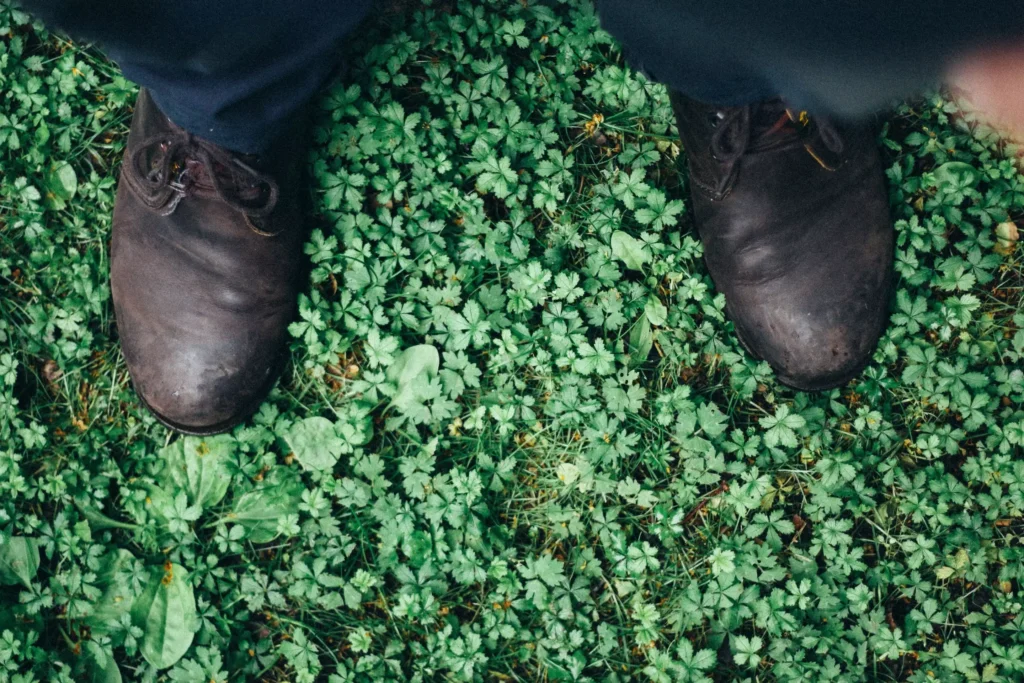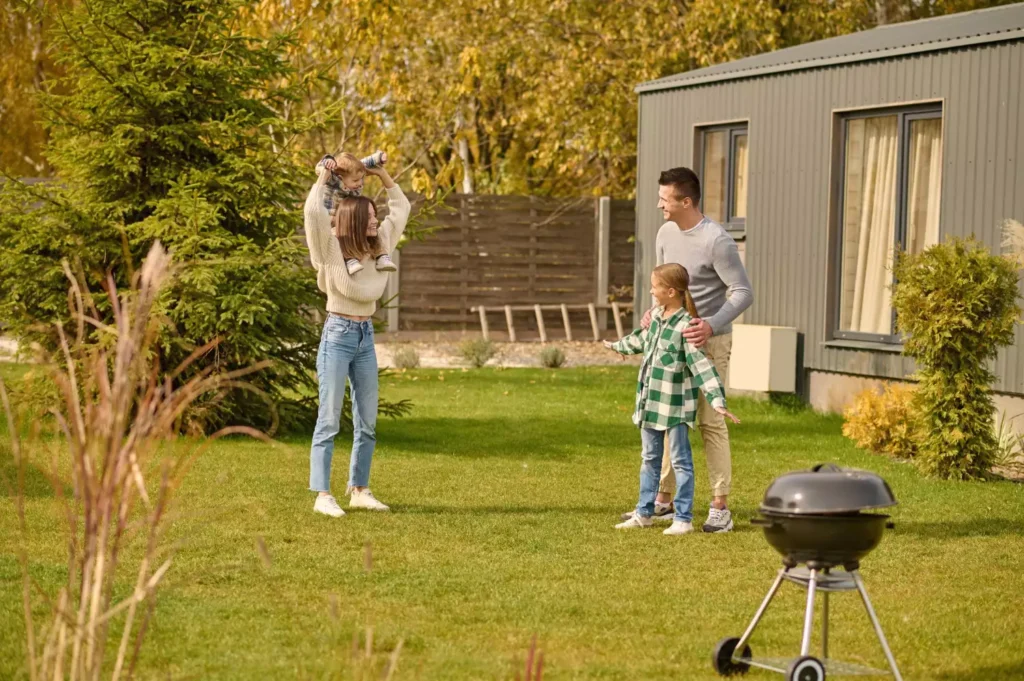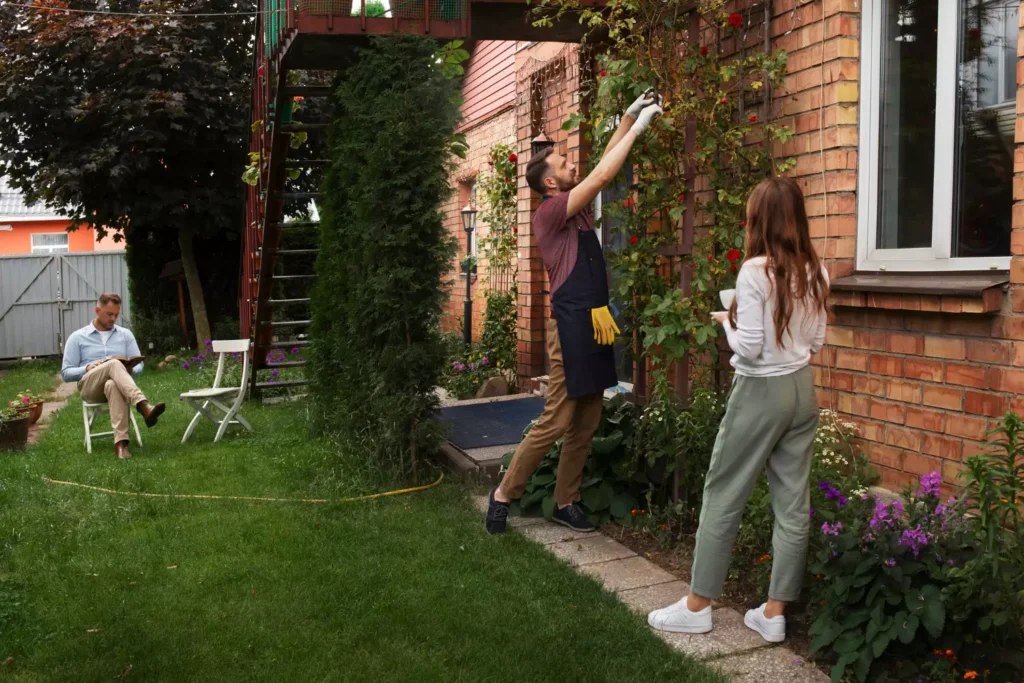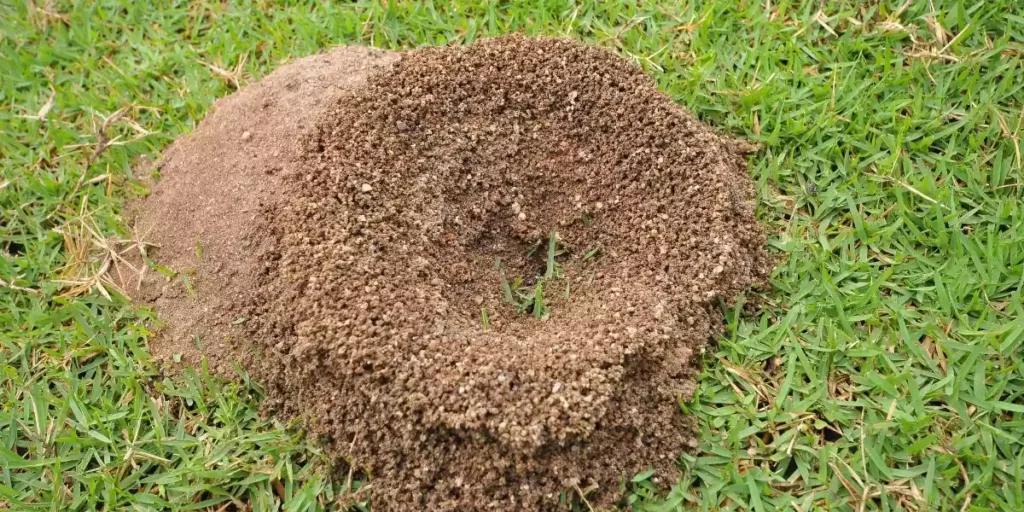As a passionate gardener, I’m always looking for ways to reduce waste and create a healthier environment for my plants. Mulch is a popular tool for gardeners to help retain moisture, suppress weeds, and provide nutrients to plants. However, after a while, mulch becomes old and depleted, and we wonder if it can be composted and reused in the garden.
This question led me to research the benefits of composting old mulch, the types of mulch that can and cannot be composted, and tips for successful mulch composting.
In this article, I will share with you what I’ve learned about composting old mulch. You will discover how to properly compost old mulch, reduce waste, and create a healthier environment for your plants. By understanding the benefits of composting old mulch and the best practices for doing so, you can enjoy a more productive and sustainable garden.
So, let’s dive in and explore the world of mulch composting!
Can Mulch be composted?
You can totally compost your old mulch, and it’ll break down into organic nutrients that’ll provide your plants with a feast! Organic mulch, like wood chips, straw, or leaves, can be mixed directly into a compost pile or bin. Breaking the mulch into smaller pieces and soaking it with water before composting will help with faster decomposition.
It’s important to note that inorganic mulch, like rubber or plastic, can’t be composted and should be disposed of properly. However, old organic mulch can still be composted and reused in the garden. By adding old mulch to the composting process, you can create a nutrient-rich soil amendment that benefits your plants.
So don’t throw out that old mulch just yet, give it a second life by composting it!
How Long does Mulch take to compost?
Depending on the type of mulch, it can take anywhere from a few weeks to several months for it to break down into compost. Woody materials like bark and straw take much longer to decompose than softer materials like grass clippings and fallen leaves.
However, there are ways to speed up the composting process. One way to speed up the decomposition of mulch is by hot composting. This method involves layering the mulch with other types of organic nitrogen-rich waste, like kitchen scraps and green vegetation, and keeping the pile moist and aerated. Another way is by regularly wetting the mulch layer and adding green nitrogen-rich material to the mixture.
Regardless of the method used, it’s important to regularly check the compost pile and mix it to prevent compaction and ensure proper aeration for microorganisms. With patience and proper care, old mulch can be turned into nutrient-rich compost for your garden.
How to prepare Mulch to be composted
So, when I’m preparing mulch to be composted, I always make sure to break it up into smaller pieces first. This helps with faster decomposition, as it provides more surface area for the bacteria and microorganisms to work on.
Then, I soak the mulch with water before adding it to the compost pile or bin. This helps to jumpstart the decomposition process and ensures that the mulch is moist enough for the bacteria and microorganisms to thrive.
Break up into smaller pieces
Breaking up old mulch into smaller pieces before composting is an essential step to speed up the decomposition process. The decomposition process occurs when bacteria and microorganisms break down the organic matter present in mulch. Breaking the mulch into smaller pieces increases the surface area of the material, allowing more bacteria and microorganisms to access it.
As a result, the decomposition process occurs more quickly, and the mulch turns into nutrient-rich soil for your plants. When breaking up old mulch, it’s best to use a shredder or chipper to create smaller pieces. Alternatively, you can use a garden fork to break the mulch into smaller pieces manually.
It’s also essential to ensure that the mulch is damp, as this will make it easier to break down. Once the mulch is broken down into smaller pieces, you can add it to your compost pile or bin. Mixing it with other organic matter, such as grass clippings and food scraps, will help speed up the decomposition process further.
By breaking up old mulch into smaller pieces before composting, you can create nutrient-rich soil for your plants and reduce waste. This process is an excellent way to repurpose old mulch and help your garden thrive. So, the next time you have old mulch lying around, consider breaking it down into smaller pieces and composting it to create a healthy environment for your plants.
Soak the Mulch
To speed up the decomposition process of your old mulch, try soaking it with water before adding it to your compost pile or bin. This will help break down the material more quickly and make it easier for microorganisms to digest. Soaking the mulch also helps to keep it moist, which is essential for decomposition to occur.
When soaking your old mulch, be sure to use enough water to thoroughly moisten the material. You can use a hose or a large bucket of water for this process. Allow the mulch to sit in the water for a few hours or overnight before adding it to your compost pile or bin.
By taking this simple step, you can help maximize the benefits of your old mulch and turn it into valuable compost for your garden.
Best Type of mulch to Compost
I can confidently say that organic mulches are the best type of mulch to compost. This is because organic mulches, such as wood chips, leaves, and grass clippings, are rich in organic nutrients that beneficial bacteria and microorganisms can break down.
On the other hand, inorganic mulches, like rubber mulch and shredded plastic, cannot decompose into compost and shouldn’t be used for composting.
Organic Mulches
You can reuse old organic mulch in your garden by adding it to your compost pile or mixing it into the upper layer of your soil, where it’ll continue to decompose and provide beneficial nutrients to your plants.
Remember the old adage: waste not, want not. Using old mulch in composting is an excellent way to recycle it and reduce waste. The decomposed mulch will provide a nutrient-rich soil amendment that can be used to boost plant growth and improve soil structure.
If you choose to mix old mulch into your garden soil, it’s best to do so in the fall or early spring. This will give the mulch time to decompose before you plant your garden.
It’s also important to note that old mulch shouldn’t be used as a mulch layer on top of the soil. This is because it can be too compact and prevent water and air from reaching the roots of your plants. Instead, mix it into the soil where it’ll decompose and provide nutrients to your plants over time.
Inorganic Mulches
Don’t let inorganic mulch ruin your garden; switch to organic options that provide nutrients and actively improve soil structure.
Inorganic mulches, such as rubber and stone, cannot be composted and do not decompose over time. This means that they do not provide any nutrients to the soil and can even harm the environment if not disposed of properly. Inorganic mulches also do not allow for water and air to penetrate the soil, which can cause the root systems of plants to suffocate and die.
On the other hand, organic mulch can be composted and provides a multitude of benefits to the soil and plants. Organic mulches, such as wood chips, leaves, and grass clippings, decompose over time and release nutrients into the soil that plants can absorb. They also improve the soil structure by increasing drainage and aeration for plant roots.
By choosing organic mulches, you can not only improve the health of your garden but also contribute to a healthier environment.
Can I put mulch in the bottom of my compost bin?
Think of the bottom of your compost bin like the foundation of a house, and using old mulch as a base can provide support for the rest of your compost materials. This practice can help with drainage, aeration, and overall decomposition.
Here are some things to keep in mind when using old mulch in the bottom of your compost bin:
- Use only organic mulch. Inorganic mulch like rubber or plastic shouldn’t be used in composting as it won’t decompose and can release harmful chemicals into the soil.
- Make sure the old mulch isn’t too moldy or rotten. While some mold or fungi on old mulch isn’t harmful, too much can slow down the composting process or create an imbalanced nutrient mix.
- Layer the old mulch on the bottom of the compost bin and add new compost materials on top. This will help with aeration and drainage while also providing a source of organic nutrients for the rest of the compost pile.
Using old mulch as a base in your compost bin can be a great way to repurpose materials and create a healthy soil structure for your plants. Just remember to use only organic mulch, check for mold or rot, and layer it properly to get the most out of your composting efforts.
Is Old Mulch Bad for Plants?
If your plants are struggling to grow and appear stunted, it may be a sign that the old mulch around them isn’t benefiting their growth anymore. Mulch provides essential nutrients to the soil as it decomposes, but over time, the nutrients become depleted, and the mulch loses its effectiveness.
This is why it’s essential to replenish your mulch every few years, or when it starts to break down significantly. However, old mulch can still have beneficial uses in the garden. It can be reused as compost material or mixed into the upper layer of the soil, where it will continue to decompose.
Even though it may not provide the same benefits as fresh mulch, it can still add organic matter to the soil and improve its structure. So, don’t discard your old mulch just yet – find ways to repurpose it in your garden.
Does Mulch Turn To Compost On Its Own?
As time passes, mulch slowly transforms into a rich, nutrient-dense soil amendment all on its own. However, this process can take a long time, and the length of time it takes depends on the original composition of the mulch.
Woody mulch can take up to six months to fully compost down, while other types, such as straw, grass clippings, fallen leaves, and sugarcane mulch, can decompose in as little as four to six weeks in a compost bin.
To speed up the composting process, it’s best to add additional watering to keep the mulch moist and mix it with other types of organic nitrogen-rich waste, such as food scraps or grass clippings. Adding these materials will increase the amount of nitrogen in the compost, which will help break down the mulch faster.
While mulch will naturally turn into compost if left alone, it’s best to mix it into the upper layer of the soil or add it to a compost pile to help speed up the process and make it more effective.
Conclusion
In conclusion, composting old mulch is not only possible but also beneficial for your garden. By composting, you can reduce waste and add valuable nutrients to your soil. However, it’s important to note that not all types of mulch can be composted, and proper preparation is necessary for successful composting.
As a gardener, I’ve learned that composting is a vital step towards a healthier garden. It not only helps in reducing waste but also enriches the soil, leading to healthier plants. Therefore, I urge all gardeners to consider composting their old mulch. With a little effort, you can create a thriving ecosystem in your garden, helping you reap the benefits of fresh produce and a beautiful landscape.
So, let’s compost our old mulch and watch our garden flourish! Using the rhetorical device of repetition, let’s make composting a part of our gardening routine.




